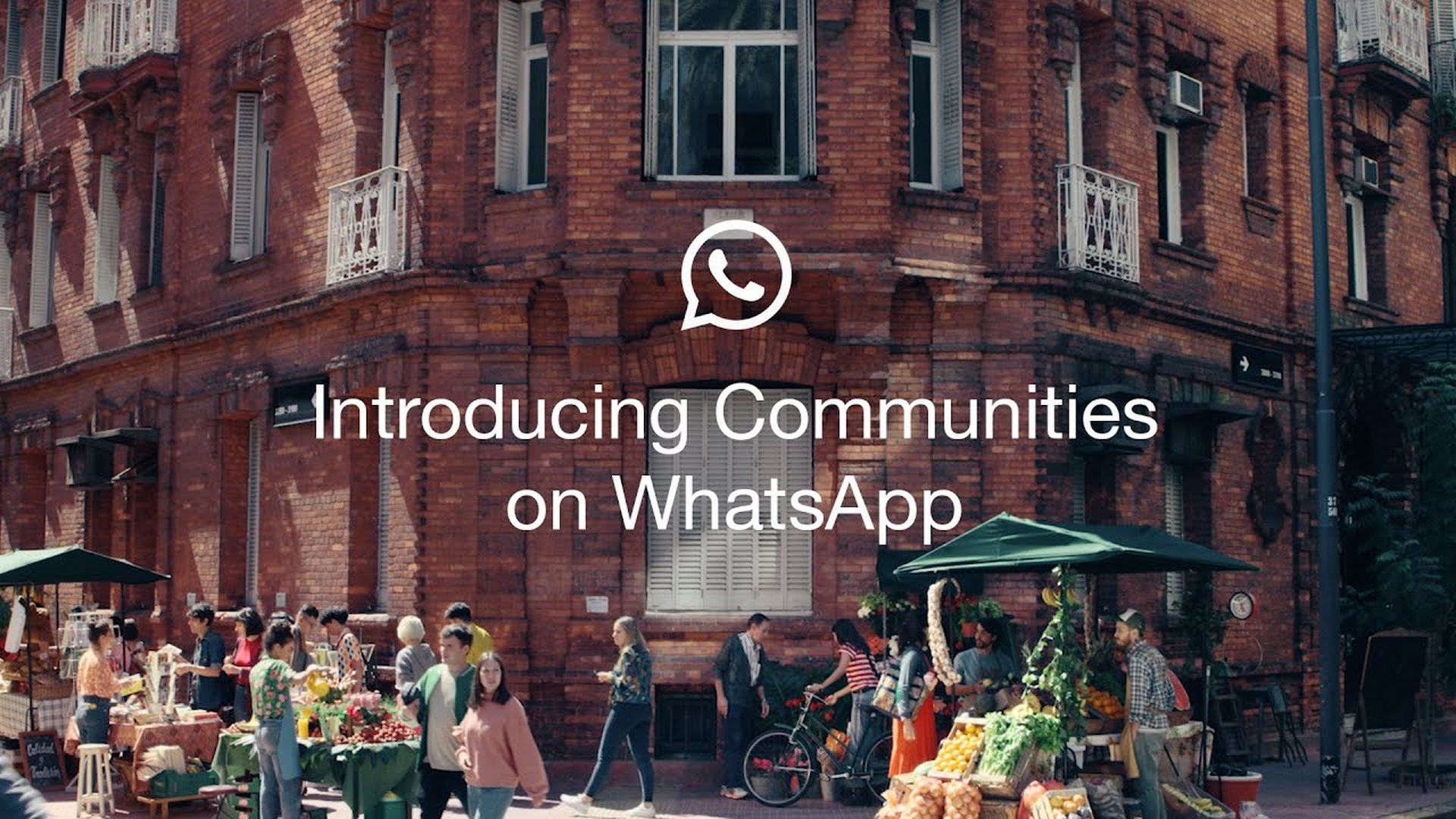Everything you should know about what is WhatsApp Communities and how to use the new feature explained in this article. Communities, a new WhatsApp feature that offers bigger, more organized conversation groups that were first put through testing earlier this year, is now officially available. Communities introduce a number of new features to the messaging platform with the goal of enhancing communication and organization among businesses, clubs, schools, and other private groups. These features include admin controls, support for sub-groups and announcement groups, 32-person voice and video calls, larger file sharing, emoji reactions, and polls.
Communities are essentially WhatsApp’s spin on a Slack workspace or Discord channel. Though if you just want to make a giant group, now you can make one for 1,024 people.
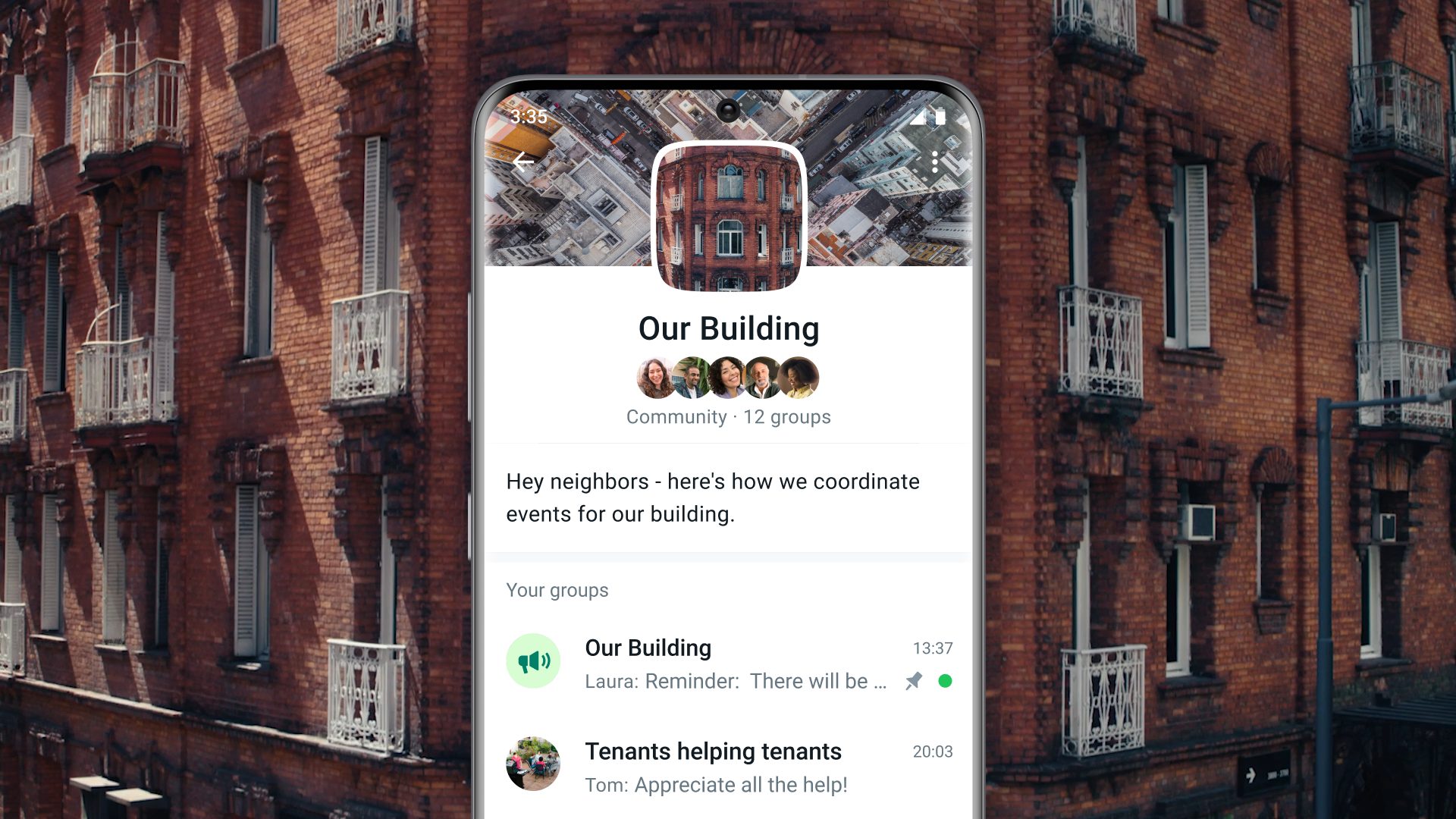
Do you know how to fix WhatsApp messages not sending error?
What is WhatsApp Communities?
Users have the power to form and unite related groups under one roof using WhatsApp Communities. Community members can stay connected by exploring and conversing in groups that matter to them, and community administrators can reach members with essential changes by issuing announcements. Members can easily set up smaller discussion groups to discuss topics that are important to them and receive updates communicated to the broader community. In communities, all of your private messages and calls are always end-to-end encrypted. No one else can read them or hear them, not even WhatsApp.
Communities are built to house numerous connected groups inside larger groups of people, such as a neighborhood or a place of employment. Think of Slack or Discord with a WhatsApp twist (with end-to-end encrypted communications), where administrators can post updates for the whole community to see. The corporation first tested communities in April, and they are now being made available to everyone.
Emoji reactions, massive file sharing (up to 2GB), and the option for administrators to remove messages are just a few of the features created for Communities that have already made their way to the WhatsApp platform before today’s debut. According to the business, WhatsApp will enable polls, 32-person video calls, and larger group sizes more widely outside of Communities.
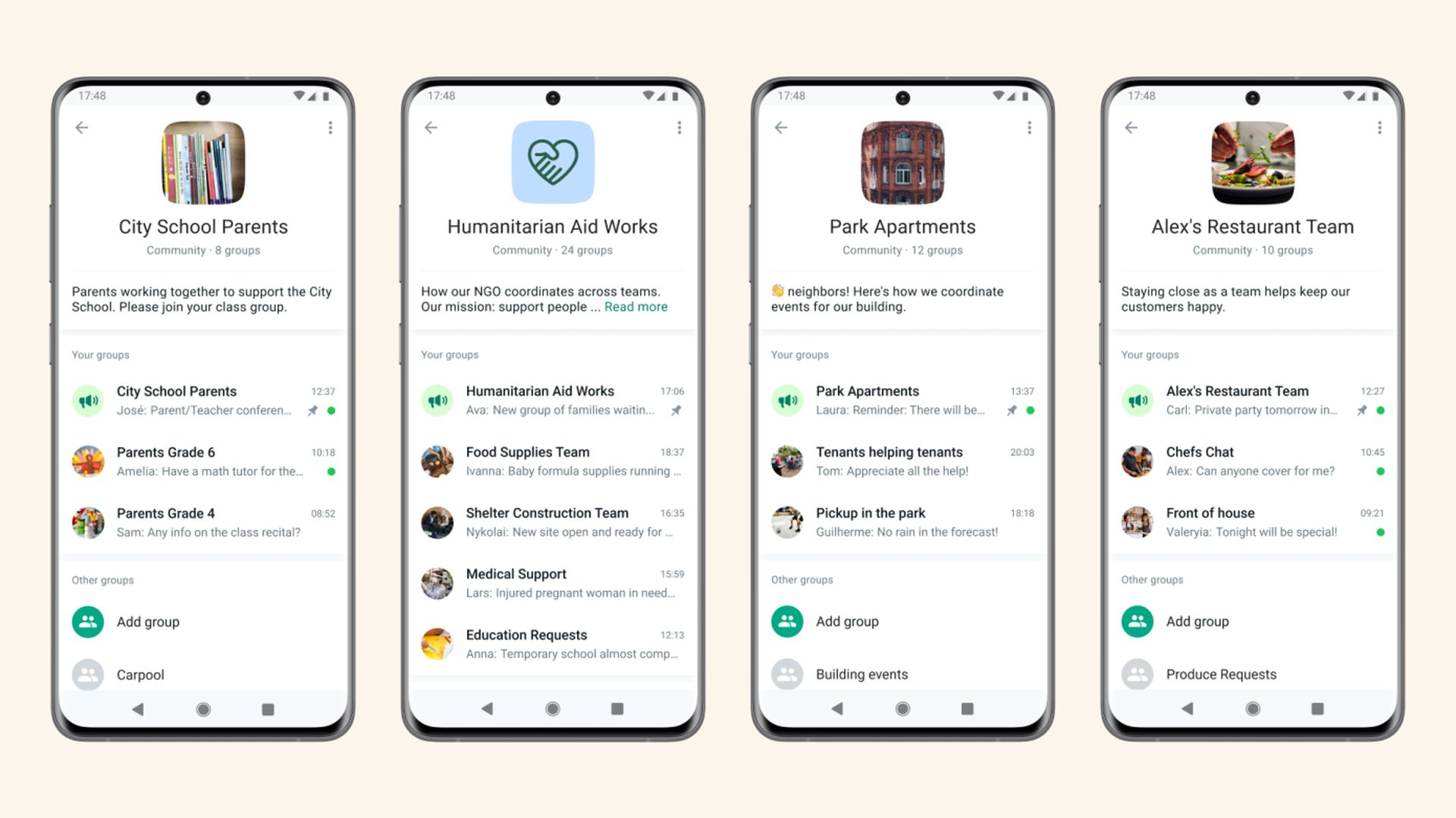
Due to the fact that both the new feature and Facebook Groups enable features like sub-groups, file sharing, admin functionality, and more, there may initially be some parallels between the two. WhatsApp Communities, however, are designed to be used by people who may already be connected in the real world, unlike Facebook Groups. Because WhatsApp is phone number-based, as opposed to Facebook, members of these discussion groups already know one another because they may have swapped phone numbers or, at the very least, provided their numbers with the group admin. The phone numbers will only be visible to admins and members of the same sub-groups as you; they will remain concealed from the community.
This aims to strike a compromise between users’ demands for privacy and the necessity of enabling communication among group members. For instance, even if you don’t know every parent on your child’s sports team personally, you’re probably at ease talking to them in a small group setting that might be a part of the larger school community.
WhatsApp Communities are concealed, unlike Facebook Groups, which may be found on the site. You must be asked to join; there won’t be a search or discovery option available.
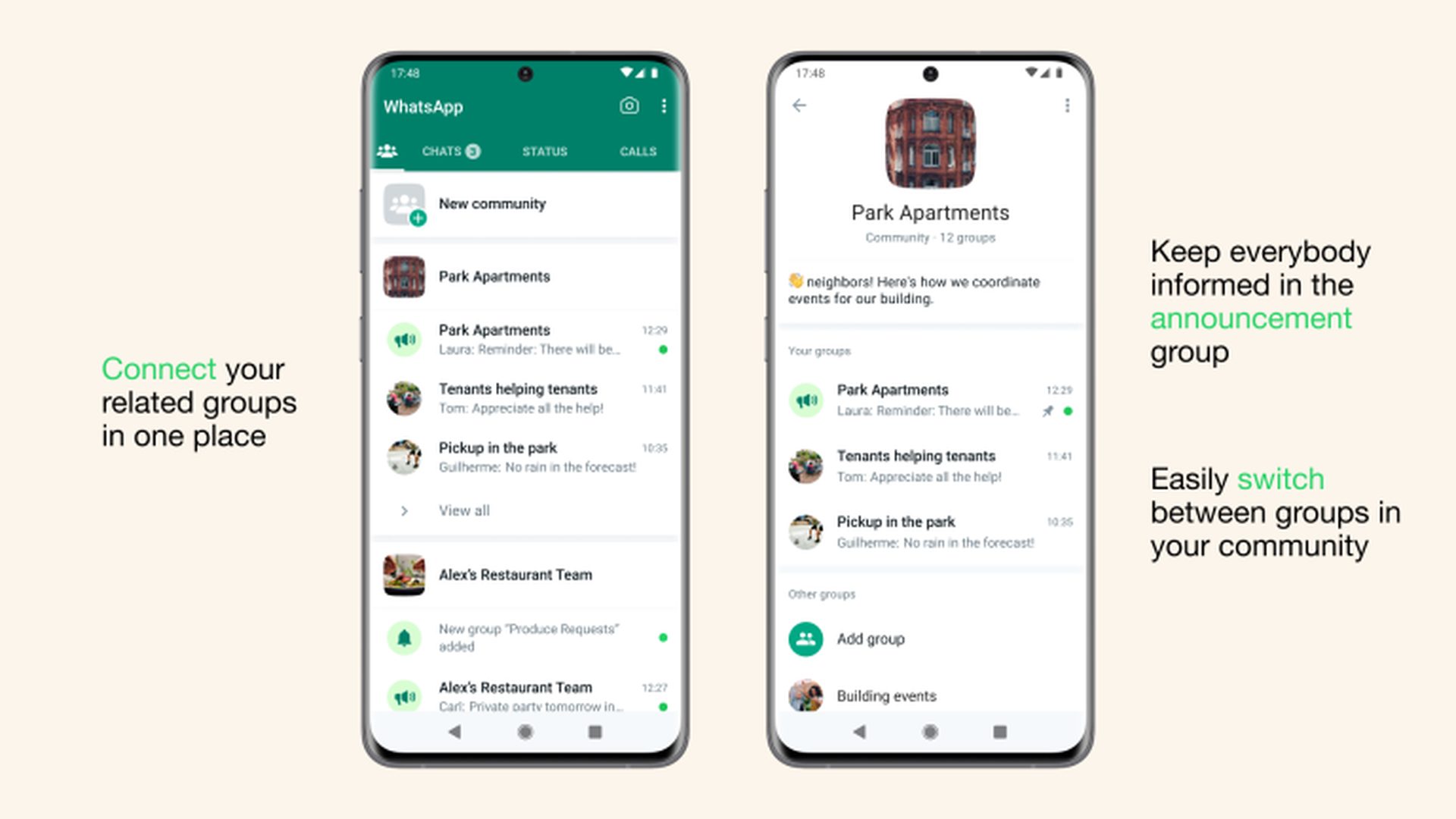
Group chat administrators can convert their existing groups to Communities at launch if they so choose, or they can start over and construct their groups as Communities from scratch. The admins also have the authority to invite others to join the community by sending them invitation links, or they can add people to the groups.
Communities are set up with a central announcement group that informs all members of the most crucial messages. However, only the admin-approved tiny sub-groups of users are allowed to chat. By doing this, members can avoid receiving excessive communications about group activities and events they are not involved in. For a planning group or volunteer project, participants might set up a subgroup where only a select few would need to communicate.
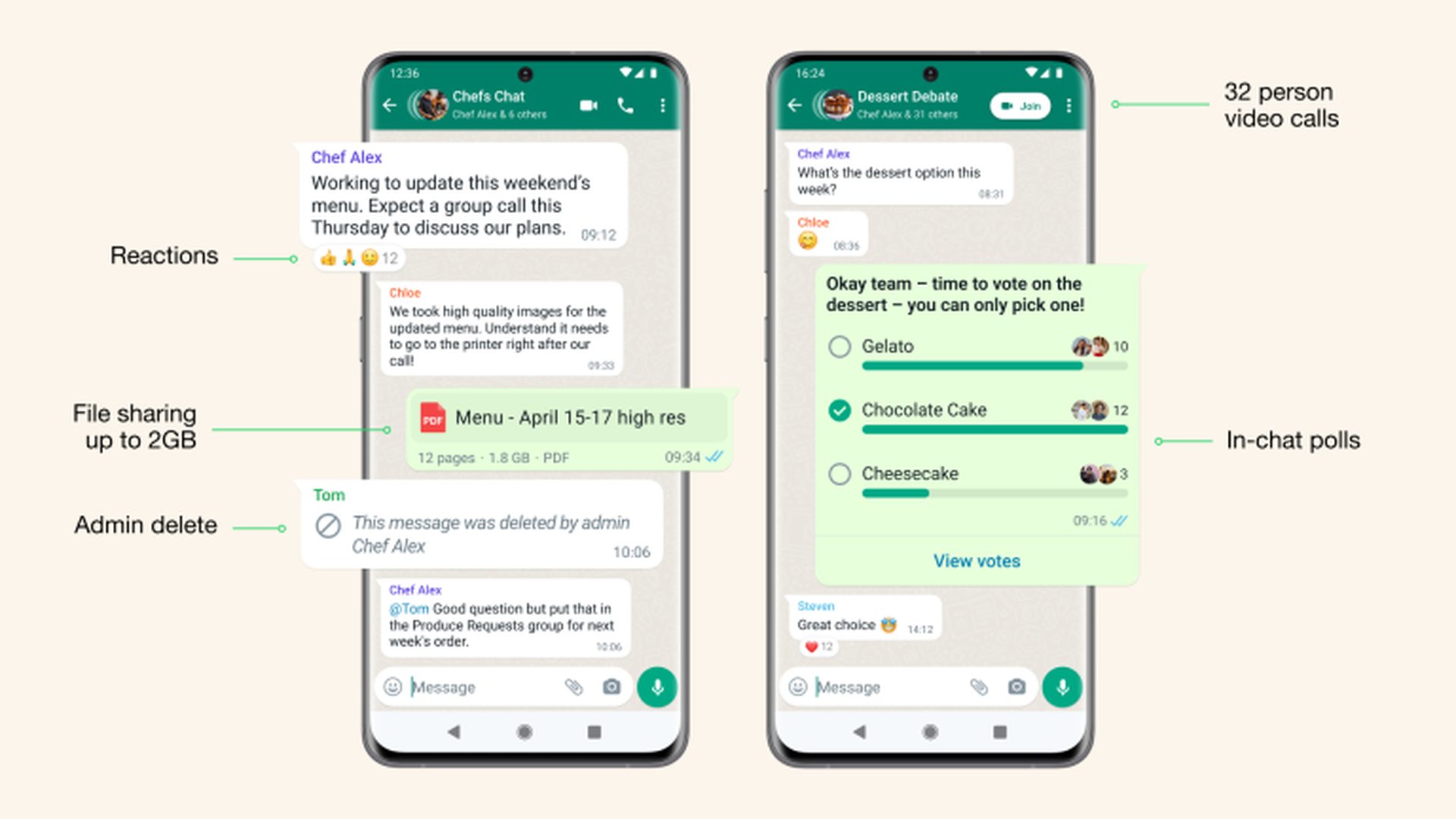
Communities’ release could put pressure on other apps that have become popular for private and massive group communications, such as Telegram and Signal, as well as on established messaging services like iMessage and apps made specifically for businesses or educational institutions, such as GroupMe, Band, TalkingPoints, Remind, and others.
“The alternatives available today require trusting apps or software companies with a copy of their messages – and we think they deserve the higher level of security provided by end-to-end encryption,”
Meta CEO Mark Zuckerberg
Concerns
There are still worries that communities like this could support organizations that act illegally or dangerously, similar to how Facebook Groups have recently enabled the spread of false information about health and elections, feeding the flames that, for example, led to the January 6 Capitol Riot. WhatsApp claims it will rely on the Community’s “name, description, and user reports,” among other unencrypted details, to assess whether action is necessary. As a result, the company’s methods to prevent such activities seem restricted.
It states that it will ban specific community members and administrators, dissolve the community, or ban everyone from the community if it discovers that a group is being used to disseminate child sex abuse materials, plan violent acts, or engage in human tracking.

